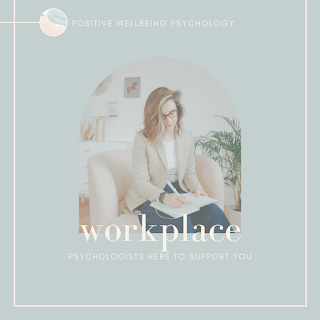Talk To An Online Psychologist Anywhere in Australia
Online Psychologist anywhere in Australia at Positive Wellbeing Psychology
Why do I feel this way in the most recent Lockdown - what do I feel more okay?
It makes so much more sense why understand each lockdown feels so much harder...
Now with lockdown #6 extended in Melbourne, we are having to absorb more covid trauma. With each lockdown, stress from the trauma can build if you don't release it. What needs releasing is the fight, flight, and freeze response within your nervous system.
What are some of the impacts of Covid-19 on mental health?
At Positive Wellbeing Psychology, our psychologist explore in session with clients why this lockdown feels different to earlier lockdowns. Our clients can access support with one of our warm and compassionate Melbourne based psychologist anywhere within Australia.
The lockdown has seemed to have an impact on individuals in terms of mood, energy levels, motivation, hope, interest in usual activities, increased feelings of frustration and anger, feelings of hopelessness. Often individuals are reporting to find themselves feeling burnout with increased levels of fatigue, with more difficulty maintaining their usual daily tasks, school or work deadlines.
What can we do to manage increased stress resulting from the Covid pandemic and lockdowns?
In this short article, we explore the importance of adopting a range of activities daily, to help discharge our stress fully.
We have incorporated the Polyvagal Theory to make sense of this, including the fight, flight, and freeze response within your nervous system. We’ve drawn on the autonomic nervous system in attempt to help re-pattern the nervous systems, build capacities for regulation, and create autonomic pathways of safety and connection. This makes so much sense why the lockdowns are taking more of a toll and clients are finding some of the below strategies helpful.
Reference for image: Charissa Fry, LPC.
What are some useful activities to help discharge stress resulting from ongoing activation of the fight-flight freeze response of the nervous system?
Below we provide some suggestions, which no doubt you have been doing some of these already to help manage. We highly recommend printing these out and ticking off a few each day to help discharge the stress fully. This way you can emerge from this traumatic period unscathed and healthy.
For your Fight Response (Anger/Blame):
• Boxing bag (hitting into a mattress)
• Weights/Resistance training
• Gym
• Using resistance straps, bands at home
• Treadmill on incline
• Stationary bike on strong resistance
• Martial arts/Tai Chi
• Competitive sport
• Tantrum kicking whilst laying down on a yoga mat/bed
For your Flight Response (Fear/Escape):
• Walking
• Jogging
• Running
• Sprints
• Rebounder trampoline
• Up and down stairs
• Swimming
• Push Bike
• Exercise Bike
• Start jumps
For the Freeze Response (Depression/Hiding):
• Meditation
• Bubble Bath
• Long shower
• Call a friend or family member for a chat
• Spend time with your animals
• Hugs/cuddles
• Massage
• Play
• Games
• Art/Drawing/Painting
• Stretches
• Yoga
• Singing
• Dancing alone/partner
• Play music
• Reading/Listening to Books
• Listen to a Podcast
• Gardening
• Journalling
• Being in nature
• Sitting in the sunshine
Ticking off a few of these each day will help calm your nervous system greatly! Talking to an online Psychologist in Australia can assist you to understand how to apply useful coping strategies to discharge stress and to increase your window of tolerance.
It's great to have this list where you can see it each day because stress and trauma affects your memory, and you can easily forget to do them.
Visit Positive Wellbeing Psychology to learn how an online psychologist in Australia can help you to manage stress during the Covid-19 pandemic.



Comments
Post a Comment